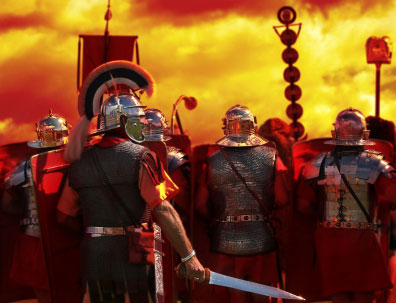Parallel Theologies?
Michael F. Bird recently wrote:
The Jerusalem council achieved a via media by finding in Scripture a justification for the inclusion of Gentiles within the church without requiring circumcision and placing upon Gentiles only the obligation to avoid idol food and sexual immorality. Yet the Jerusalem council also permitted the existence of two parallel theologies: one theology where the Gentiles were uncircumcised equals in a renewed Israel with holiness constituted by the Spirit and another theology where uncircumcised Gentiles were guests in an Israelite remnant that still defined holiness through Torah observance. The Jerusalem council’s decisions seem optimized in a setting where Jewish Christians and Gentile Christians remain in parallel rather than integrated, especially in relation to shared meals. The council did not stipulate the standard of law observance to be upheld for Eucharistic fellowship to ensue.
Bird makes some interesting observations in his post, but two parallel theologies? Is that really what was going on? And does the council’s decision apply to modern observance of the Torah (ie. Messianic Jews)?
Theology is an overused word, for sure. Two theologies almost indicates two ways of understanding God, if not two separate gods. But the mention of Torah observance clarifies Bird’s meaning: the Jerusalem council maintained that Jewish believers approached God in one way, and Gentile believers approached God in another. And both were valid.
This AD30-AD70 era of “overlap” was the fulfilment of the Old Covenant order, with the Hebrews/Jews as a priestly nation mediating for the Gentiles. There were two tables: Passover for the mediators alone, and Tabernacles for Jews and Gentiles as one body (with 70 bulls sacrificed for the 70 nations in Genesis 10). [1] Salvation came to the Jews first because they were in the Holy Place, and the Gentiles were in the outer court. The “sons of God” set the Covenant table and invite the “daughters of men” to eat at it.
The only reason the Jews could still observe the Torah, and why Paul could take a Nazirite vow, was that the Temple was still standing. Observing Torah might have been valid when the Jerusalem council met, but as these early decades of the church rolled on, the door of the new age was opening wider and wider, and the light of the church era was eradicating the shadows of the old order. [2]
The Revelation illustrates this process of increase/decrease in a number of ways—in symbols. One of the most striking is the Black Horse, announcing that the Old Covenant grains were wasting away while the New Covenant oil and wine were in abundant supply. The Green Horse (the Levitical sword) finished it off.
Another is the symbol of “buying and selling.” [3] In Acts, the Jewish Christians are meeting in the Temple, but by the end of the process they were locked out. The Jewish polity unwittingly locked the Pentecostal glory of God out of His own house. It was left unprotected, which brought about its desolation.
Like rusty trainer wheels, Torah observance was a decayed, torn veil that soon passed away, despite the desperate post-mortem stitching of the Herodians and the zealots. And as Paul stitched Jew and Gentile together across the empire over the next decades, Torah observance also decayed. By the end, it was only the hardliners who remained, and God called them together to Jerusalem for a feast in which they themselves were the meat on the table for the Gentiles they despised.
The “parallel theologies” were the fulfilment of the Old Covenant two-feast order, but this bipolarity was temporary. [4] The book of Hebrews trumpets the end of the division of Adam begun in Abraham. [5]
Salvation was certainly of the Jews, but that Abrahamic blood was now in heaven. The blood no longer mattered. Only Spirit now mattered.
The wise decision of the Jerusalem Council cannot be applied to anyone beyond AD70, when James’ temporary “Tabernacle of David” (the firstfruits church) was consumed by the true Temple of Solomon. We live in a permanent house.
“Beloved, now are we the sons of God.”
__________________________________
[1] See Eat Local and Die for the only way this applies today.
[2] See The End of Shadows.
[3] See Worship As Commerce.
[4] See Three Babylons.
[5] See The End of Judaism.


























